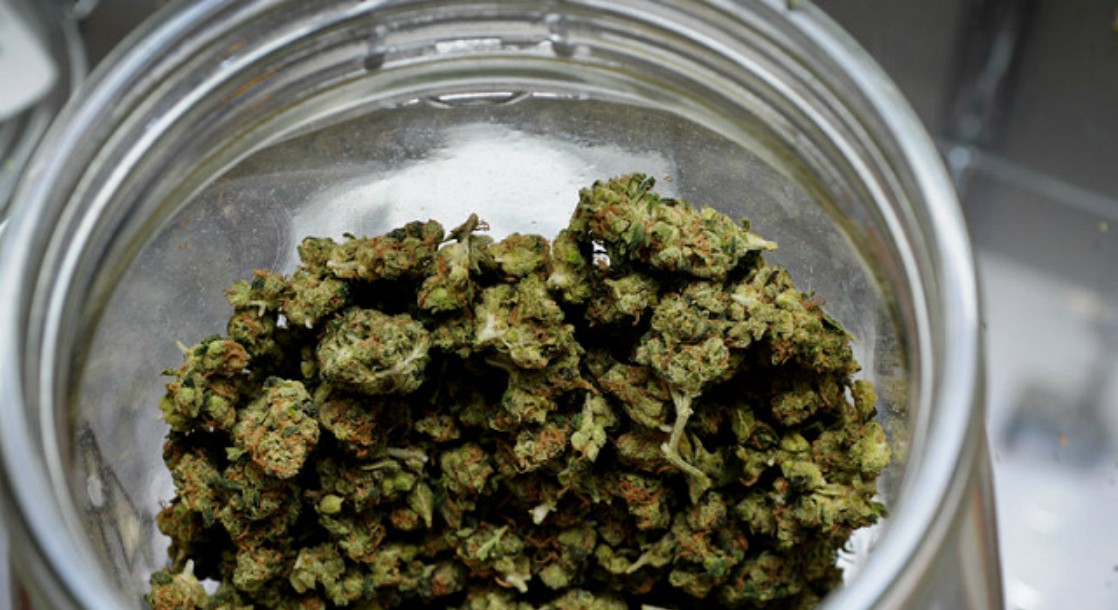Photo via iStock/ stellalevi
Though cannabis might be all the buzz these days — especially in Israel, where the government has allowed research on medical marijuana since the 1960s — Israeli authorities are exercising a great deal of caution when it comes to including cannabis businesses on the national stock exchange.
An article published on the Israeli news site Calcalist described the Israel Security Authority (ISA) — a chief financial regulator in the country — as having "cold feet" following a wave of excitement after shares of cannabis companies on the Tel Aviv Stock Exchange (TASE) jumped hundreds of percentage points in a relatively brief period. Despite false rumors to the contrary, the ISA hasn't excluded cannabis companies outright. Rather cannabis firms, like cryptocurrency companies (which have also recently drawn the attention of Israeli regulators, according to Calcalist), are "regularly and constantly examined," explains Offir Eyal, senior advisor to the ISA’s chairwoman and director of its international affairs department.

Stock valuation and growth of Israeli cannabis companies; chart via Calcallist.
But the ISA itself doesn't choose which companies will make it to public indices — that's up to the Tel Aviv Stock Exchange. "[The ISA] can direct TASE to exclude some sort of companies from the indices (as was done recently regarding crypto companies), but beside that TASE runs the show," Eyal explains.
Despite Israel's pioneering efforts in the realm of medical marijuana, the Israeli cannabis market is now facing some uncertainty. Whereas the Israeli cannabis industry had recently looked forward to exporting products into Europe and elsewhere, Prime Minister Benjamin Netanyahu recently ordered all export plans to be frozen for fear of product spilling over to the black market, as well as concerns of upsetting President Trump in the U.S., according to reports. If the freeze isn’t lifted, Israeli cannabis firms may face considerable hurdles in growing beyond their small national market.
Despite this setback, pot stocks have been hot on the TASE, where cannabis companies, soaring into triple-digit percentages, had overtaken cryptocurrency shares as recently as last month. However investors should be wary, in case pot's triumph on the TASE turns out to be a bubble, according to industry insiders.
Saul Kaye, founder and CEO of iCan, who is also an active cannabis and blockchain investor, says that limiting the exposure of mom-and-pop investors is a good thing which keeps their financial risk in check. Experts in the cannabis space tend to agree that the ISA's cautious approach to cannabis might actually be for the better.
It’s true that cannabis companies may be perceived as "pump-and-dump strategies" by more rapacious stock traders, says Nachshol Cohen, co-founder of cannabis-backed cryptocurrency Cannabium, and so it's good policy, he echoes, that they be supervised carefully by the ISA and TASE. Heavy regulation is good, as long as it's not suffocating, he adds.
"Some companies are traded in a very strange manner: Companies that don't even have sales, don't have revenue or plants in the ground are already traded according to a 700 million shekel worth," says Cohen. "It's clearly a bubble, and in Israel they don't know how to address it." As with any other new industry, be it crypto or cannabis, there will be some disruption or uncertainty in the sector, he says.
Cohen's own company Cannabium, a cryptocurrency backed by Colombian-grown CBD, will not even be registered on the TASE. "We're not even trying with the Israeli stock exchange; we're just going to the U.S. and Cayman Islands," he says. "I feel sorry for it — the Israeli [cannabis] industry has the potential to become worth a few billion, but exports weren't allowed by the government." By the time the government changes its mind on exporting cannabis, the Israeli marijuana industry may already be left behind by more advanced countries like Canada, or even places like Colombia or Uruguay, Cohen suggests. Some companies, Cannabinum included, are even looking for production outside Israel because of the export policy.
The environment for canna-business stocks is becoming increasingly favorable abroad, as well. Earlier this year, Canadian company Cronos Group became the first cannabis company to be listed on the U.S. stock exchange, while in Canada alone upward of three dozen cannabis companies are listed on its national exchanges. TASE, however, lists fewer than half a dozen.
While the Israeli cannabis stocks will eventually even out, Cohen adds, the ebb and flow of international politics and finance may already put the the marijuana businesses behind them at a disadvantage.











